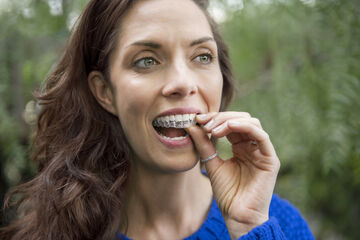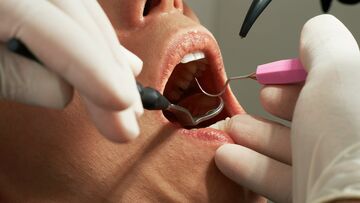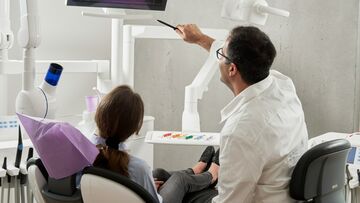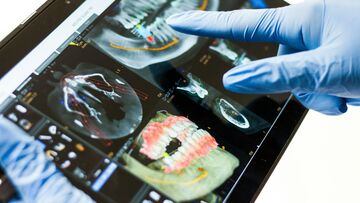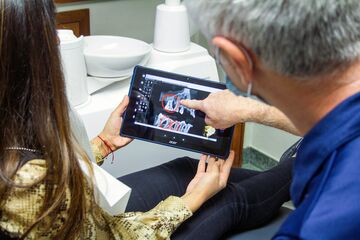
Teeth can crack and break for a wide range of reasons. Sometimes it’s something as simple as biting down on a piece of hard food or ice that leads to a crack. In other instances, the crack might occur during an accident or a blow to the face. Cracks below the surface of the gum could be caused by a blow to the bottom of the chin that causes the teeth to clamp shut.
Whatever the cause of your cracked tooth, it’s important to seek out help as soon as possible. Cracked teeth will not heal on their own, and while the issues might not be immediately obvious, you can expect to face problems in the future. Here’s everything you need to know about cracked teeth and what to do with them.
How do you know you have a cracked tooth?
Cracked teeth aren’t always obvious. The crack could be very visible and a part of the tooth may break away. This is more common with cracks that occur at the ends of the teeth. The crack could also be down the length or width of the tooth but not result in a full break. Or the crack could be below the gum line in the root of the tooth.
You might experience pain after cracking a tooth, or you might not notice it at all. If the tooth has chipped, you might notice the edge of your tooth is sharper than usual. This can lead to cuts on your tongue, lips and cheek.

What happens if you leave a cracked tooth?
The outcome of your cracked tooth will depend on the extent of the damage. If the crack extends below the gum line or exposes the soft pulp of the tooth, there is an increased risk of infection. The crack will allow bacteria into the tooth which will damage the pulp.
If this happens, you can expect to experience sharp and stabbing pain in your tooth. It will likely be tender to touch and the gum and cheek might be swollen. This can lead to an abscess that will kill the pulp of the tooth.
When this happens, the only remedy will be a root canal treatment with a crown to help restore and protect the tooth. In some cases, your dentist will recommend that the tooth be extracted and replaced using a dental implant or bridge.
Will a cracked tooth heal on its own?
No, a cracked tooth will not heal on its own. The only exception would be when a tooth is chipped. The chipped tooth may be very sharp to begin with, but continued use might smooth down the edges and make it less sharp. While this isn’t healed, it won’t be a bother to you anymore.
However, it’s worth noting that this tooth will be weaker and the pulp may be exposed. This could lead to an infection further down the line.
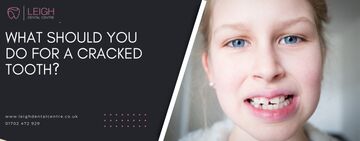
What should you do for a cracked tooth?
If you have broken off a piece of tooth, try to save it and place it in a small amount of milk. Your dentist may be able to reattach the chipped portion of the tooth.
If you have cracked your tooth but nothing has come loose, still visit the dentist and let them know what happened. They will likely X‑ray your jaw to see the extent of the damage, as the crack could extend down the root.
The solution will all depend on the extent of the damage. Your dentist may recommend composite bonding to help repair the damage and protect the tooth. They could also recommend a dental crown to strengthen the remaining tooth.
If you have left a broken tooth for a long time and have started to notice it is tender or painful, see a dentist as soon as possible. The earlier you can diagnose the issue, the better.
Closing thoughts
A cracked tooth is a common issue that many people will face throughout their lives. Rather than ignore the issue and hope that it never becomes a bigger problem, you should always visit a dentist.
It’s difficult to see the extent of the damage without an X‑ray of your tooth and jaw. To help stop a small problem from becoming a much bigger problem, visit your dentist to put your mind at ease.
There are many different solutions for broken, cracked and chipped teeth that are suitable for all budgets. Book an appointment today to learn more about how we can help.
Contact us to make an appointment
Exclusive Offer
Airflow stain removal from our hygienist
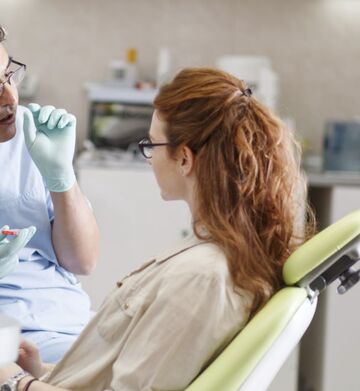
Time for you perfect smile?
Book your consultation today
When visiting our practice you know you are visiting the dental professionals trained to the highest standards. You are greeted by our welcoming staff, who share the same aim, to make your visit with us as comfortable and stress free as possible.
